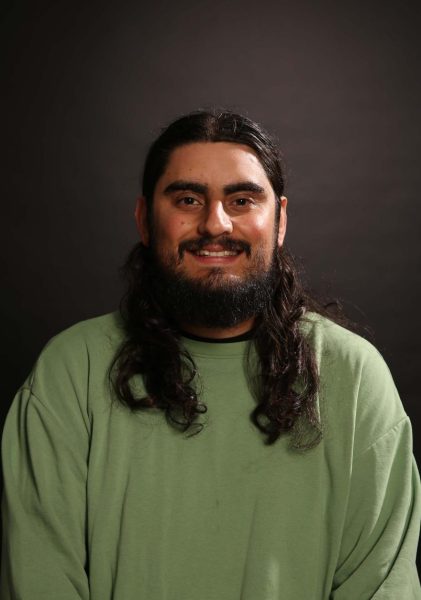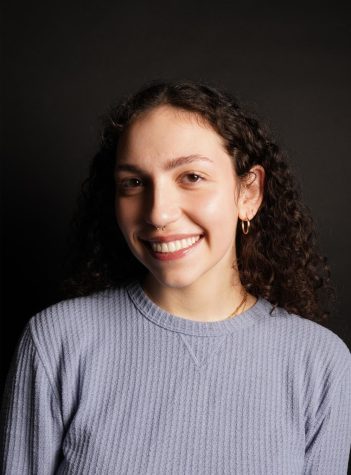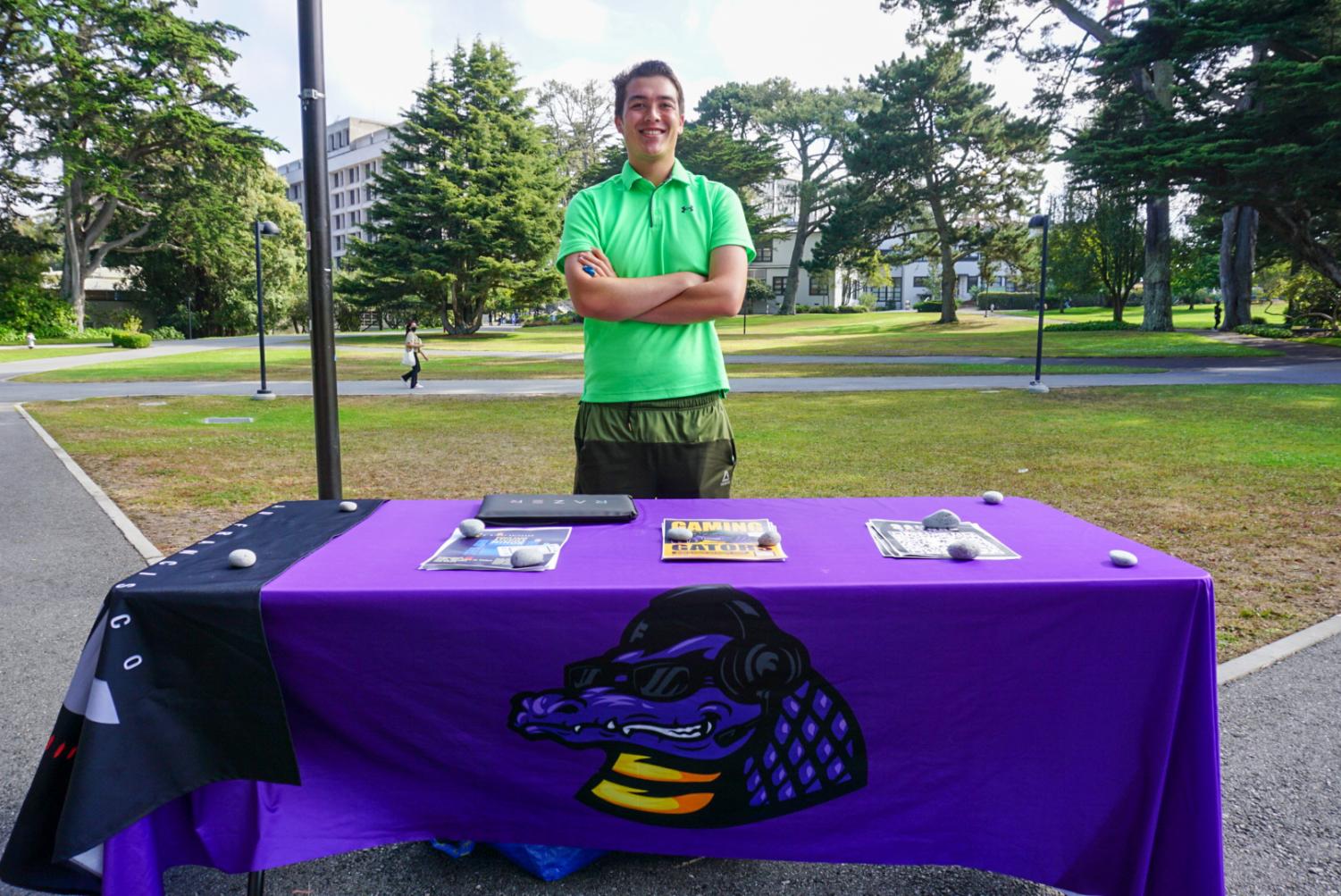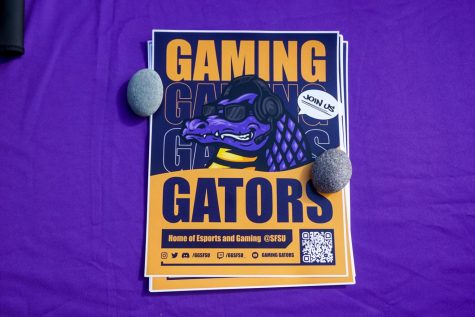



7 years and a group effort led to a new minor at SF State—Video Game Studies.
Aug 31, 2022
What started as a suggestion in 2015 led to SF State’s newest minor—Video Game Studies. The program offers classes ranging from Sound Design for Games, to Fantasy and Fiction: Exploring Parallel Worlds.
The process began seven years ago when Christopher Weinberger, the program founder and VGS coordinator, spoke to former Dean of Liberal and Creative Arts Paul Sherwin in 2013. But that was just for a single class.
Weinberger proposed a bigger version of the interdisciplinary project to former Dean of the LCA Andrew Harris, who later approved the project and encouraged exploring more curricular possibilities in 2016.
Weinberger’s fascination with studying video games stemmed from the ability to stray from conventional teaching. He said students could learn about video games by comparing and contrasting what a philosopher sees versus what history sees, for example.
“But video games don’t work that way,” Weinberger said. “So, they change our conceptions of what narrative is, why we engage stories and how we engage stories.”
After he submitted the minor proposal, Director of the School of Music Cyrus Ginwala and professor Steve Horowitz reached out to Weinberger and suggested they collaborate with other faculty on campus.
Horowitz has an extensive background in the video game industry as audio director at Nickelodeon and co-founder of The Audio Institute.
“We started to put together a consortium together of people who are interested,” Horowitz said. “We started reaching out to other departments, and that’s how we met Chris [Weinberger].”
Still, the work was a collaborative effort, and needed assistance from faculty and donors to bring light to the minor. The first meeting about VGS only involved the professors from the School of Music, but they quickly connected to over 20 faculty on campus.
Once the minor was approved, the founders could begin creating a curriculum, which was the next phase in launching the minor.
“We divided into small teams, some researching curricula, others researching scholarship and others looking at institutional data,” Weinberger said.
It took three years to research how students at other institutions study video games. Their collected data outlined three primary focal points for the minor today: design, theory and interpretation, and social impact historically.
Each section is taught by different department faculty. Faculty from the design department and the School of Music teach how to make music, sounds and design principles.
The second field—theory and interpretation—are taught by faculty from the philosophy, literature and cinema departments. Communication studies and history faculty teach the social impact field.
According to Weinberger, the VGS minor has 30 students enrolled this semester.
Instead of a program where you code or create a video game, they created a studies program where you learn about the impact of video games on different fields. The interest is in how video games intersect with different disciplinary methodologies taught at SF State.
Since VGS is not a major, the program does not receive any of the benefits that majors receive, such as administrational staff, a program chair or a designated office. Instead, VGS has a consortium where interested faculty meet and discuss how to teach the program.
“Every faculty member is a volunteer member doing it because they love it,” Weinberger said.
Over the summer, Broadcast and Electronic Communication Arts professor Marie Drennan wanted to better gauge the minor, so she asked Weinberger if she could join the iLearn as a trial course for no credit.
“I learned everything from aesthetics and sound design, philosophy and history, all aspects of video games, video game culture, all sorts of stuff,” she said. “And that was great because I’m only teaching one tiny aspect of it, which is writing, but you have to know a lot about all the aspects of it to make it all come together.”
Drennan, one of the latest faculty to join VGS, said she gained interest years ago and now teaches Writing for Video Games.
While VGS was approved last semester, students have been buzzing about the minor in the Gaming Gators Discord chat since April 2015.
In 2022, the president of the Gaming Gators, Ryan Winter, reached out to Weinberger offering to help spread awareness about the minor.

“We were using our platform, using our socials,” Winter said. “Our tweets got thousands and thousands of retweets. Our Instagram posts got impressions, all sorts of stuff was happening. The minor didn’t have outlets. We were able to use our social presence to help out.”
The Gaming Gators had a public meeting on campus Aug. 23, where 150 gamers attended.
Only two attendees raised their hands when Winter asked how many VGS minors attended. Still, several people told Winter they were interested in adding the minor by the meeting’s end.
Christopher Mullins has long had an affinity for video games, and his passion led him to declare VGS as his minor.
“I was thinking about doing video game journalism for companies like IGN, so the major/minor combination seemed perfect for that,” Mullins said.
Horowitz, Drennan and Weinberger agree that VGS will only serve as a gateway to various jobs and career opportunities, especially because of SF State’s proximity to various tech companies and Silicon Valley.
“The game industry is growing,” Horowitz said. “There’s a career path. I feel good being able to tell my students if you learn these things and if you’re diligent and talented and committed to doing this, you can go out and get work.”
The overall coherence between all parties has made it possible for VGS to have a successful start. Weinberger lauded the support he had from the University throughout the process and its launch.
“Sometimes, when you try to change things at universities, universities are kind of like, ‘well, no, we have rules.’”
Since the beginning of the proposal, SF State has been willing to extend its hand and help in any way it can, which Wienberger said makes the program’s future exciting.
“I’ve been really grateful,” he said. “It seems like pretty much everyone is for this.”

